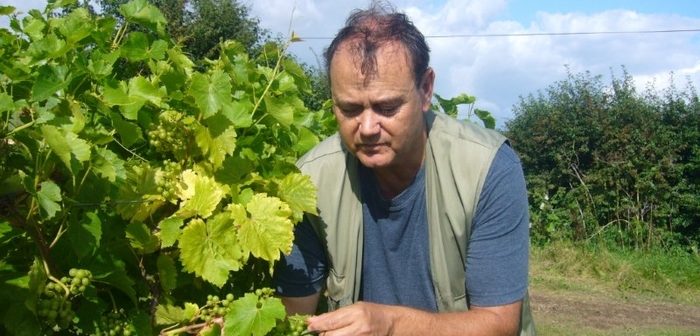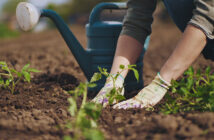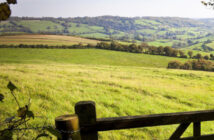The UK wine industry is going from strength to strength, with one million vines planted this year and one million planned for next year. According to UK Wine Producers Ltd (UKWP) which was formed this year in July as a result of unifying the UK Vineyards Association and the English Wine Producers, there are now 501 separate vineyards, 2,330 hectares under vines, plus 133 wineries and/or wine producers, producing 5 million bottles of wine in the UK. Chris Cooper, a specialist agronomist for the distributor Hutchinsons is also retained by the UKWP to provide technical support and is well aware of what it takes to grow a successful crop under UK conditions. “Top class agronomy is vital to get the best from the crop and, with many new entrants likely in the future; there is a greater need to offer a professional helping hand throughout the season. The UK industry is said to continue to expand and is said to grow by 50% by 2020. UK growers are taking accolades and prizes with regularity. Hopefully more UK produced wines will be selected for the Christmas season.”
Chris explains that this advice goes back well before the crop is planted. “Planting systems and variety selection are important for the wine to be produced and in the UK the top varieties we grow are Chardonnay (23% of area planted), Pinot Noir (22% of area planted) and Bacchus (8%). “Bacchus is grown almost exclusively in the UK as it suits our growing conditions particularly well. Just as in New Zealand where the Sauvignon Blanc grape transformed the New Zealand wine industry, so Bacchus could do the same for the UK. Another grape variety that has hit the headlines this year is Albariňo. This variety is usually associated with wet climate of North West Spain in Galicia. But this year a Chapel Down Albariňo wine made from grapes grown in 2014 in Sandhurst, Kent outperformed those of Galicia in a blind wine tasting in Madrid.”
Each month growers need to focus on different aspects of agronomy – pruning in the winter, diseases control, pest control, weed control and nutrition in the spring and summer and harvesting and wine making in the autumn.
“Each season requires expert advice on agronomy, which at Hutchinsons we provide. Keeping up with registrations in vines is challenging enough and I get involved in submitting applications for EAMU’s for the industry which will allow more products to be used in cost-effective grape growing. With potentially many new entrants coming into wine growing, it is a lot more than just deciding to get involved and planting up. There are a lot of technical skills required to make sure that you make the best of what you have got,” says Chris Cooper.




